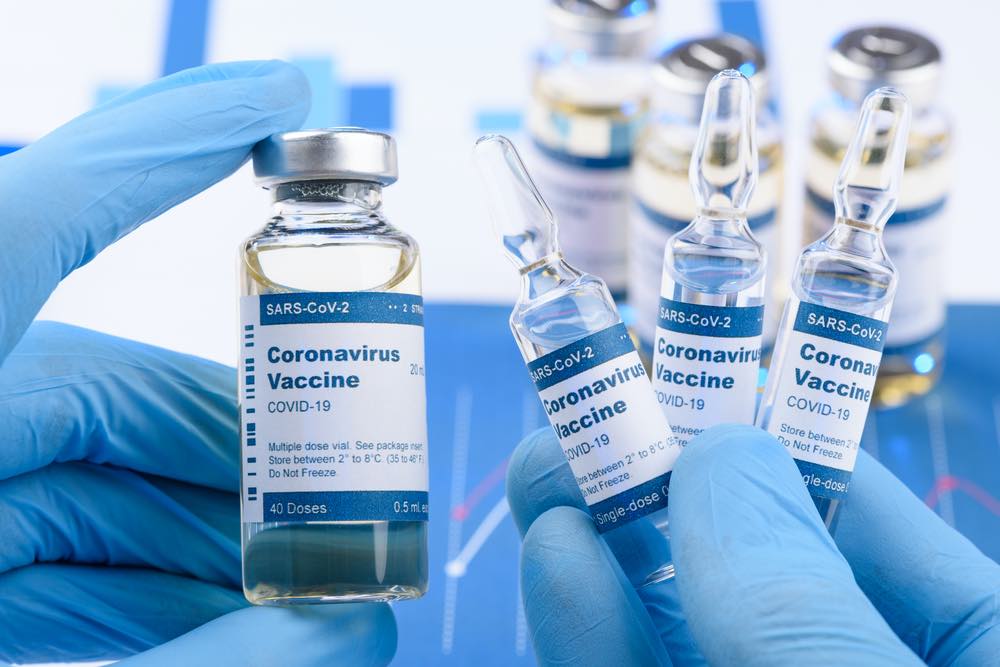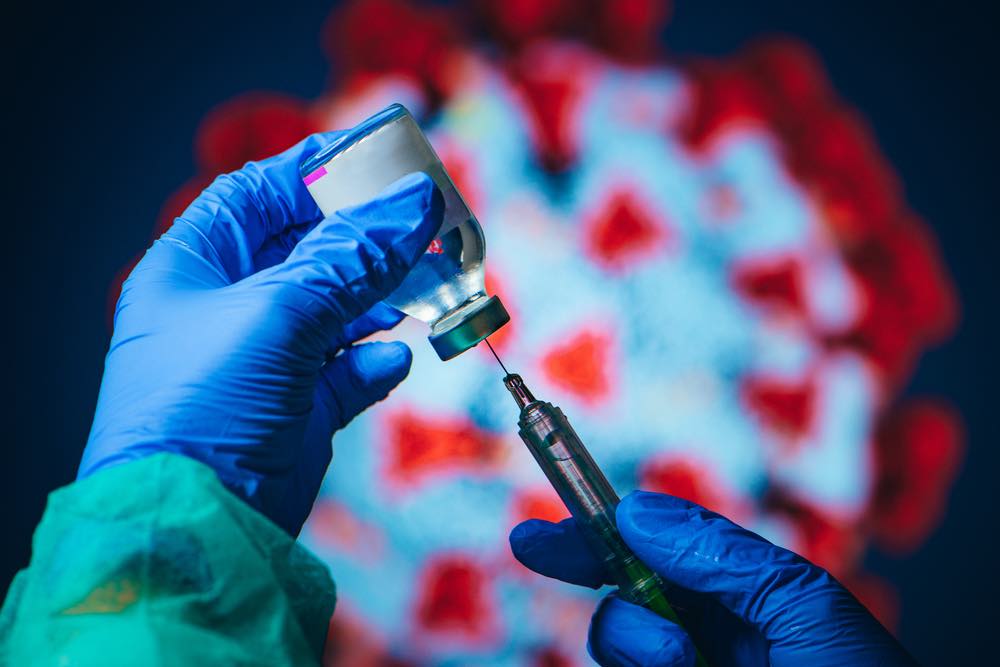It's Tuesday March 3, 2026

December 8, 2020
Ros Cheetham is a member of the COVID-19 Community Task Force. She writes in about the current development of the COVID-19 vaccines.
The news is full of positive results about the COVID-19 vaccines. However, you may be wondering how the different vaccines compare and whether you can feel comfortable about considering whether or not to get the vaccine once it’s available.The development of a COVID-19 vaccine is being safely accelerated through several programs and the US Food and Drug Administration (FDA) has issued specific guidance for the development of this vaccine. It now looks as if it could be available later this year or early in 2021 in the US.
Though you may not become ill with this life-threatening disease, getting vaccinated not only benefits you, but also helps protect your loved ones and enables the population to reach herd immunity. Additionally, widespread vaccination could be the key to fully opening the economy again.
 What is a Vaccine?Vaccines prevent us from getting some of the most serious and deadly known diseases. The idea that people who survived smallpox would not get sick again if re-exposed to the disease has been around for thousands of years. However, the notion of inoculating people with a weakened form of smallpox, called cowpox, came in the late 1700s and was the discovery of an English doctor, Edward Jenner. Smallpox vaccination was so successful that smallpox is now considered to be eradicated.
What is a Vaccine?Vaccines prevent us from getting some of the most serious and deadly known diseases. The idea that people who survived smallpox would not get sick again if re-exposed to the disease has been around for thousands of years. However, the notion of inoculating people with a weakened form of smallpox, called cowpox, came in the late 1700s and was the discovery of an English doctor, Edward Jenner. Smallpox vaccination was so successful that smallpox is now considered to be eradicated.Vaccines contain the same or similar germ, or a part of it, that causes the disease. However, that germ is in a dead or weakened state so that you cannot contract the disease itself, although you could experience mild symptoms such as a headache or muscle aches. Your immune system, the part of the body that fights off infections, learns about the disease-causing germ (pathogen) and produces antibodies against it so that the next time you come in contact with the disease, your body can fight it off.
Today many people receive vaccinations against diseases like polio, measles, meningitis, shingles, hepatitis B, tetanus, yellow fever, cholera, flu, and pneumonia. Some vaccinations are only given a few times in your life. Others, like the flu, must be given annually because the flu virus mutates, or changes, frequently and so last year’s vaccine will no longer protect you this year.
What is in the COVID-19 Vaccine?The COVID-19 vaccines are being developed in the same way. They are trying to tell your immune system to defend itself strongly against the coronavirus, but to do it with few, or very mild, health consequences. There are several different ways that companies are trying to create a COVID-19 vaccine:• Put the proteins into a viral vector – a virus that is very unlikely to cause harm. This is how the AstraZenica/Oxford vaccine works.
• Use pieces of genetic material from the coronavirus. This is how both the Pfizer and Moderna vaccines work.
• Use a killed or weakened coronavirus.
• Use a protein from the virus or a fragment of the virus.The Pfizer, Moderna and AstraZenica vaccines all need two injections, 3-4 weeks apart. The initial trial results are telling us that shortly after the second injection, the first two of these vaccines are over 90% effective and the Astra-Zenica one may be slightly less effective. However, we don’t yet know if this will be enough to give lasting immunity. This is one of the things that the clinical trials will help us understand.
 Why does a vaccine take so long to be approvedVaccines are complex biological products given to healthy individuals to prevent an illness, and although a high degree of effectiveness is clearly needed, safety is of paramount importance. It’s why development of a vaccine consists of several phases, taking an average of 10 to 15 years to develop.
Why does a vaccine take so long to be approvedVaccines are complex biological products given to healthy individuals to prevent an illness, and although a high degree of effectiveness is clearly needed, safety is of paramount importance. It’s why development of a vaccine consists of several phases, taking an average of 10 to 15 years to develop.When developing a vaccine outside of a pandemic, the companies performing the research and development, or in some cases a governmental institution, bear all the risk and cost of the development. The stages are performed in order and investment in the next phase is only done if there is a positive result from the earlier phase. No company could normally afford to set in motion production of millions of doses of vaccine without being sure that the vaccine was safe, effective, and likely to gain regulatory approval.
Additionally, a trial measures success by the number of volunteers who catch the disease, and it can be difficult and time consuming to recruit the 30,000 volunteers needed to test the vaccine.
Sometimes clinical trials must stop or slow down because the investigators see an unexpected and serious problem. The trial is put on hold while an independent panel of experts evaluates the cause of the problem. Once the panel have worked it out, the trial will re-start or be stopped altogether. This process adds additional time to development.
What’s difference with the COVID-19 Vaccine?Many of the time consuming factors in regular vaccine development have been mitigated.With so many cases of COVID-19, it will not be difficult to find the 30,000 volunteers. Also, a lot of people appear to be willing to enter these clinical trials.
The US government under the guidance of Project Warp Speed, has made money available to the companies with the most promising vaccine candidates. This allows the companies to invest in future work without waiting for read-outs from the earlier research, minimizing risk to the companies and their investors, while ensuring that the most promising vaccine candidates can progress as quickly as possible. It is the main reason why it may be possible to have a vaccine for COVID-19 at the end of 2020 or in early 2021.
FDA GuidanceThe FDA has issued guidance for the conduct of COVID-19 vaccine trials encouraging sponsor companies to do certain things that can speed up development, like combining phase trials, while at the same time ensuring safety.Pfizer and Moderna have applied to the FDA for an Emergency Use Authorization (EUA). This process is used for any new drug when “the known and potential benefits of a product […] outweigh the known and potential risks of the product.”
This means that during clinical trials, if the vaccine is seen to be safe and effective by an independent safety review panel and the FDA, then an EUA would be issued making the vaccine available. However, the clinical trials must be completed and the FDA will continue to monitor the safety and effectiveness of the vaccine. If serious issues occur then they would withdraw the Emergency Use Authorization.
Otherwise, upon completion of the phase 3 studies, the complete vaccine development would be reviewed, and the vaccine approved for general use.
People are naturally concerned about the safety of a vaccine for the novel coronavirus when it may seem that things are being rushed. There are many safeguards in the drug development system to avoid serious problems with products. In an effort to further bolster public confidence in the scientific and regulatory process used for all drugs, including vaccines for COVID-19, nine drug companies involved in this research recently signed a pledge that they would “stand with the science” and not risk bringing an inadequately tested vaccine into use.
 When can we expect a vaccine to be available in Eastern North Carolina?Though a vaccine will likely be available later this year or early in 2021, it is expected that the vaccine will be rolled out first to front line workers, then to vulnerable populations, and only last to the general population. This is the normal process for distributing the vaccine. Since 1964, the United States has relied on the Centers for Disease Control and Prevention’s Advisory Committee on Immunization Practices to make those decisions.
When can we expect a vaccine to be available in Eastern North Carolina?Though a vaccine will likely be available later this year or early in 2021, it is expected that the vaccine will be rolled out first to front line workers, then to vulnerable populations, and only last to the general population. This is the normal process for distributing the vaccine. Since 1964, the United States has relied on the Centers for Disease Control and Prevention’s Advisory Committee on Immunization Practices to make those decisions.Initially, any vaccine will be available under an EUA, which may discourage some people from being willing to take it.
Why should I get vaccinated and how can my being vaccinated help protect others?Recently released results indicate that some vaccines may be over 90% effective, at least in the short term. A vaccine will reduce your chance of getting COVID-19, a life-threatening disease, by a significant amount. Also, it will reduce your chance of passing COVID-19 to loved ones, who may be more vulnerable than you are, through age or underlying health conditions.With a large portion of the population vaccinated many economic activities and recreational activities could resume. It’s possible that being vaccinated may make it easier to do some activities, such as travel.
Vaccination against COVID-19, will help reach herd immunity – when a population receives indirect immunity from an infection due to a significant number of individuals in the population already having immunity. So, when a person comes into a community infected with COVID-19 they don’t pass the infection on because those they come into contact with are immune. This is how diseases get stamped out, like smallpox, or become rare, like measles.
A safe and effective vaccine for COVID-19 is an important part of bringing this serious disease under control and reaching herd immunity. It is also an important part of being able to fully open up businesses again and get the economy back on-track. Although these vaccines are being developed amazingly fast there are adequate controls in place to ensure that they will be safe and effective.
Ros Cheetham MSc lives in Oriental.Her career within the pharmaceutical industry spanned more than 30 years.Ros Cheetham
Ros held senior positions where she was accountable for all aspects of clinical trial conduct in many therapeutic areas including vaccines. Through her work, Ros is familiar with the US Food and Drug Administration regulations for clinical trial and for the registration of new drugs.
Related Links• FDA Guidlines for the Development and Licensure of Vaccines to Prevent COVID-19
• 9 Drug Companies Pledge to Stand with Science

